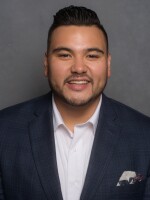Proponents of a multicultural education bill testified during a hearing before the Ohio House Primary and Secondary Education Committee Tuesday.
House Bill 171 aims to change the state’s model social studies curriculum, which acts as a guideline for social studies teachers in Ohio, to include the migration history, societal contributions and experiences of cultural minority groups, many of which are not included in Ohio’s current education requirements.
HB 171 was created through the efforts of OPAWL, a progressive, feminist leadership group for Asian American and Pacific Islander women, queer, trans and nonbinary Ohioans.
“I am optimistic that folks had concerns that might have been alleviated during the course of the hearing,” OPAWL Campaign Organizer Arianna Kelawala said.
African American, Asian American and Pacific Islander, Arab, African, and North African immigrant, refugee and asylee, Appalachian, Jewish, Latin American and Native American communities would be included in the guideline if the bill passed, according to the legislation.
Ohio law currently requires that schools teach “the relevant contributions to society of men and women of African, Mexican, Puerto Rican, and American Indian descent as well as other ethnic and racial groups in Ohio and the United States.”
“People didn’t think the bill would make it this far. Most people didn’t think the bill would ever receive a hearing,” Kelawala said. “The bill does have bipartisan support. We’ve heard from legislators on both sides of the aisle that they support this bill.”
A HB171 hearing was held last summer as well.
The bill, which counts 13 democrats among it co-sponsors and was created by a progressive organization, faces political challenges in the Ohio House, which is controlled by a Republican majority, said State Rep. Mary Lightbody, a Democrat from Westerville, who sponsored the bill.
“The bill itself I don’t think is all that progressive,” she said. “It’s asking that people who live here be recognized and that their cultures and their communities be discussed and students in Ohio schools learn about that diversity.”
More than 70 written testimonies were submitted to the committee ahead of Tuesday’s hearing, according to OPAWL. Along with Kelawala, OPAWL’s Lisa Factora-Borchers and her 8-year-old daughter Rosario Borchers provided in-person testimony.
Lisa Factora-Borchers told the committee that she didn’t learn about Filipino immigration, such as her own family’s immigration story, until later in life.
“As a kid growing up in Ohio, I felt singular and that my family’s story didn’t really matter," Factora-Borchers said. "I reasoned that since my family’s story, was not included in any way in the curriculum, I figured that it meant that my culture didn’t matter as much and that my family didn’t really belong."
Two representatives from the Ohio Council for the Social Studies (OCSS) also spoke.
“For students of color, studying different ethnicities has a profound impact. It cultivates a strong sense of school belonging,” said OCSS Vice-President and Associate Professor of Education at Ohio Wesleyan University Sarah Kaka. “This is the ideal time to add content that will inevitably make all of Ohio students more knowledgeable about the world around them. Educators are constantly being asked to ensure they are providing students with a well-rounded body of historical knowledge and this will truly aid teachers in doing just that.”
At the hearing, committee member State Rep. Sean Brennan, a Democrat from Parma, raised concerns that adding to the model curriculum might add too much to a teacher’s workload.
“If you do want it in the model curriculum, what are we going to take off the plate so that the teachers aren’t teaching ‘this much’ in ‘this much time?’” Brennan said.
Other racial minority advocacy groups around Ohio are backing OPAWL in the effort, including the Young Latino Network, the Freedom Bloc and the Ohio chapter of the Council on American-Islamic Relations.
Similar to OCSS, other education organizations are endorsing HB 171, including the Ohio Education Association, the Ohio Federation of Teachers and Honesty for Ohio Education.
No opponents of the bill spoke during Tuesday's hearing.




